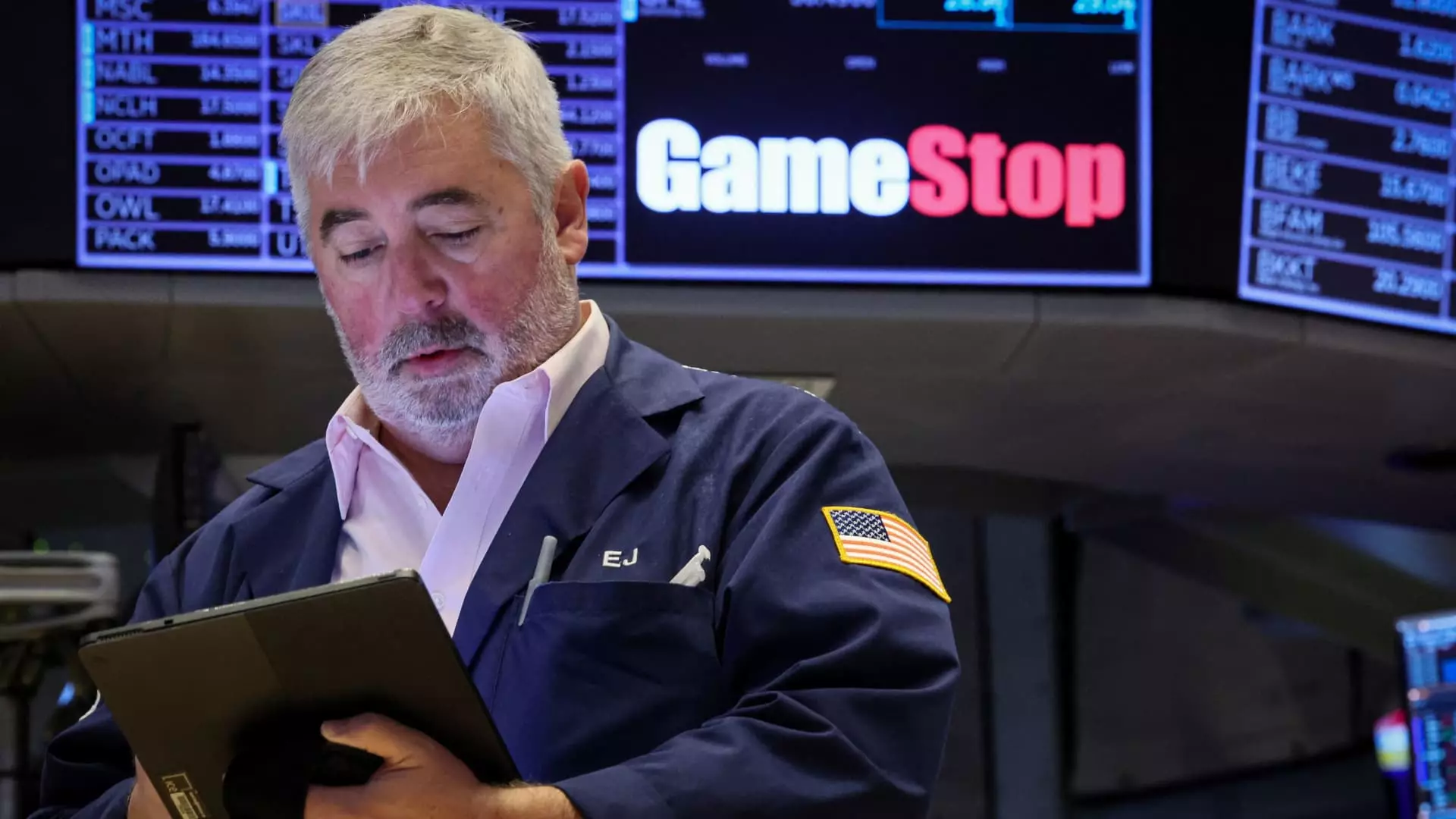GameStop, once the poster child of retail trading revolt, has taken yet another unpredictable turn on the financial merry-go-round. Like a digital-age roulette wheel, the shares have oscillated wildly, driven by fervor and speculation rather than fundamentals. Recently, the company’s announcement of plans to raise a staggering $1.3 billion through convertible notes to invest in bitcoin has sent shockwaves through the market. After a euphoric rally of almost 12% on one day, the shares plummeted over 13% the following day, raising key questions about sustainability and investor sentiment.
The Bitcoin Infatuation: A Risky Proposition
The board’s decision to pivot towards cryptocurrency may echo the high-stakes moves of MicroStrategy, but it’s critical to assess the inherent risks of this strategy. The move might strike some as innovative, even bold, but one must wonder if the board is adequately recognizing the volatility in both the cryptocurrency market and their own stock. Analysts, like Michael Pachter from Wedbush, have raised eyebrows at the notion of relying on the meme stock phenomenon while also diving headfirst into the notoriously capricious world of cryptocurrencies. His skepticism is not unfounded; the intertwining of a heavily promoted retail “meme” stock with the speculative landscape of bitcoin places both categories under significant stress.
A Debtor’s Dilemma: The Case Against Convertible Debt
Floating $1.3 billion in convertible senior notes not only dilutes existing shares but also ties GameStop’s financial future to a gamble against future expectations of meme stock growth. When investors hear the term “zero coupon,” caution often follows—after all, how can one justify lofty valuations without tangible earnings, particularly when Tesla-like growth is on the table? Considering GameStop’s current valuation at $12.7 billion—more than double its projected cash holdings post-conversion—there’s a glaring disconnect. It begs the question: how much longer can faith in a culture-driven stock hold water?
Valuation Misalignment: GameStop vs. MicroStrategy
Pachter’s assessment digs into a troubling reality: GameStop is trading at more than twice the value of its cash reserves, a stark contrast to MicroStrategy—which is valued at less than twice its bitcoin holdings. This situation amplifies doubts about GameStop’s strategy. If the company’s equity can’t bridge the gap between the inflated stock price and the fundamental value of its assets, where does that leave investors as they wrestle with the idea of transforming cash into increasingly unpredictable digital assets?
The Meme Culture: Short-Lived or Here to Stay?
In an era fueled by social media hype and retail enthusiasm, the notion of the “meme stock” has created a psychological layer that investors must navigate. Will GameStop continue to capture the imaginations of retail investors, or will the excitement be short-lived? As the saga unfolds, it’s vital to reflect on whether this venture into bitcoin will solidify the company’s fate or unravel it further, exposing vulnerabilities lurking beneath an inflated facade.

